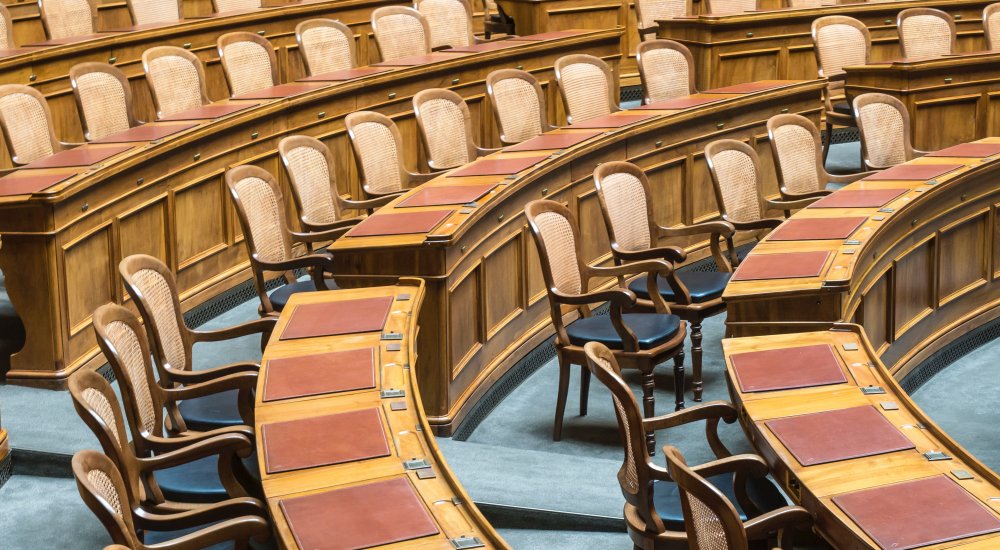Horizon Europe Framework Programme┋The emotional politics of democracies
HORIZON-CL2-2023-DEMOCRACY-01-04

Expected Outcome
Projects should contribute to all of the following expected outcomes:
- Better informed political decision-making through a thorough understanding of the interactions between emotions, values, identities, collective and individual experiences, and beliefs in informing political decision-making, and how they impact democratic governance.
- Better integration of the emotional dimension of politics in policies to foster and promote European democracies and values.
- Boosted trust in governance through improved attention towards the emotional needs of citizens, and establishment of emotional ties when developing and communicating policies.
- Improved communication of evidence-based policies that resonate with the emotional needs and conditions of citizens.
- Enhance scientific evidence, from multidisciplinary disciplines, around emergent social interaction and communication concepts for the upcoming era of digital universes and intertwined real and virtual life. Build scenarios on how this may impact democracies and propose policy recommendations accordingly.
Scope
With a rise in polarisation and affective citizenship in European democracies, the role of emotions has become central in debates about democracy. This has become more evident when considering the role of social media and certain political narratives in targeting and capitalising on such emotions.
In this context, proposals under this call should examine the role of affect and emotions (such as hope, resentment, happiness, fear, dissatisfaction, frustration, solidarity, hatred, envy, shame, pride, humiliation, etc.) in European democracies, how they interact with values, identities[1], experiences and beliefs, and how this impacts democracies and democratic governance.
Using longitudinal analyses and cross-country comparisons, proposals would contribute to understanding how changing emotional landscapes, feeling rules, display norms and shifts in popular feelings interact with practices and values core to democratic politics. Examples of this might include, but are not limited to, participation and political mobilisation; voting trends; trust, disinformation and post-truths; identitarian movements; activism and social movements; collective action and collective responsibility; extremism, etc. Proposals are encouraged to consider political narratives, campaigns and styles of leadership that build on such emotional politics, and the role of traditional and social media in fostering such public emotions.
Proposals are invited to use current events as case studies. Climate change, the COVID-19 pandemic and its consequences, as well as the brutal aggression of Ukraine by Russia, elicit a variety of collective emotions (anxiety, pessimism, nostalgia, etc.), which have broader societal and political implications. Emotion-based responses to these crises (e.g. blaming others, outgroup hostility, hope for the better future, collective solidarity, etc.) correlated with socio-demographic and political factors (including dis/trust in political institutions and leaders, perception of in/efficacy, dis/interest in politics etc.) might have an impact on political participation patterns. What might it be? And in what ways can emotional resilience be increased in a post-pandemic Europe? Proposals are also encouraged to evaluate the role and use of emotions in political communication.
In addition, proposals should ideate and pilot innovative ways to build on the emotional dimension of democracies to foster and promote democratic practices and European values. They should also provide concrete guidelines on how to better listen to the emotional needs of citizens and take them into account when developing policies, with a view to boost trust in governance. This includes exploring better ways to communicate evidenced-based policies that resonate with the emotional needs of citizens and create emotional ties. Proposals can also put forward training or awareness raising activities to ensure informed decision-making.
Finally, proposals should provide a robust evidence base and forward-looking scenarios around emergent social interaction and communication concepts for the upcoming era of digital universes and intertwined real and virtual life. At a time when social media monetise emotions, and with the growing popularity of metaverses and multiverses, how emotions displayed in and arising from digitally-mediated communication may impact democracies should be investigated.
Researchers are encouraged to use a combination of methods from different fields, to build novel and mixed-methods research designs, concepts and theories that allow understanding the interplay between emotion and democratic politics.
Case studies may include countries outside of the European Union and Associated Countries, with a view to shed light on the target geographical area by way of comparison.
Proposals are encouraged to seek synergies and collaboration whenever possible with relevant projects selected under previous EU-funded calls.[2] Clustering and cooperation with other selected projects under this topic and other relevant projects are strongly encouraged.
[1] See for instance the JRC’s “Values and Identities – a policymaker’s guide”: https://knowledge4policy.ec.europa.eu/projects-activities/values-identities-policymakers-guide_en
[2] For instance under the topic HORIZON-CL2-2022-DEMOCRACY-01-05: Evolution of political extremism and its influence on contemporary social and political dialogue, and the JRC initiative for Meaningful and Ethical Communication (Enlightenment 2.0, https://knowledge4policy.ec.europa.eu/evidence-informed-policy-making/topic/enlightenment-20_en).
